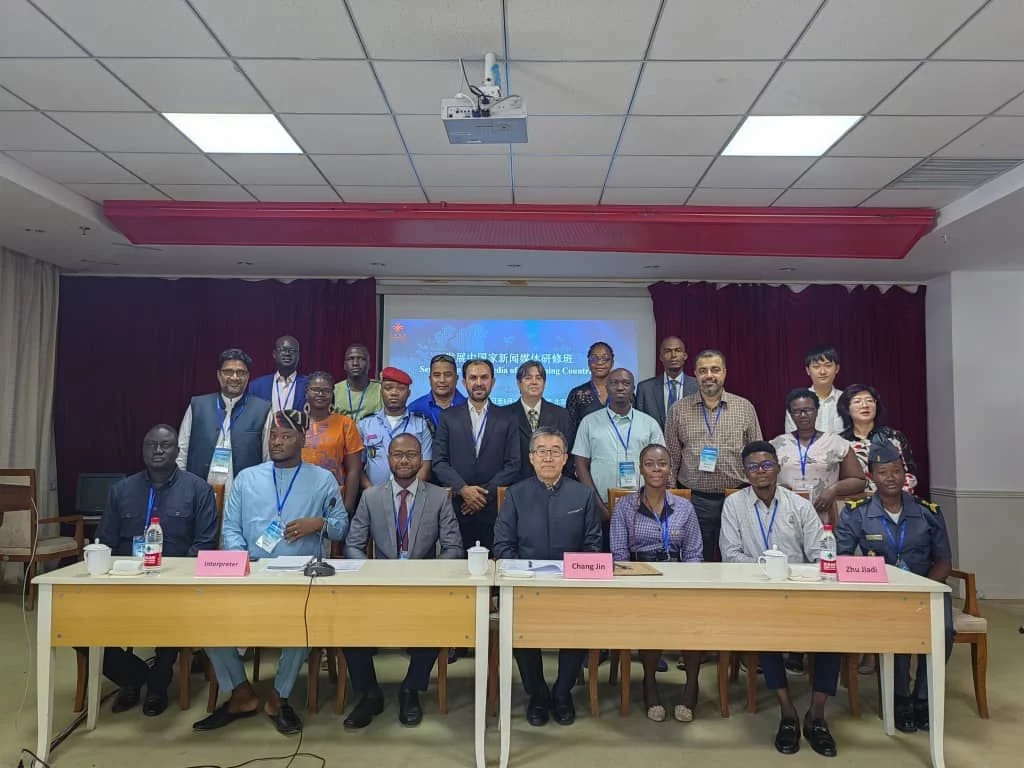Nigeria
China educates journalists to produce better news and advance international relations

The People’s Republic of China started training a select group of journalists from developing nations on Wednesday in BeijiChina educates journalists to produce better news and advance international relationsng in order to improve their reporting and advance bilateral ties between China and those nations.
The 14-day training in Beijing is being covered by an OBASANJO NEWS24 B journalist, who writes that it began on August 16 and will end on August 29.
The National Radio and Television Administration (NRTA) Research and Training Institute (RTI) is in charge of organising the programme, which is financed by the Chinese Ministry of Commerce through its International Cooperation Department.
Mr. Chang Jin, Second-Grade Counsel, NRTA, spoke at the occasion and stated that the training was intended to provide journalists with advanced reporting skills in order to promote bilateral relations and inter-personal connection.
He continued by saying that the programme, dubbed “Seminar on News Media of Developing Countries,” aims to better prepare traditional media professionals to deal with new media, often known as social media.
“In today’s world, the media has a very important role to play in fostering mutual understanding, upholding peace, and fostering joint development,” stated Jin.
“The training will also give media professionals the skills they need to combat false information, deception, and disinformation.
“The NRTA upholds the values of fairness, cooperation, and mutual benefit in its dealings with all of its partners around the world.
“We want to collaborate and learn from our partners in other nations, and we want to provide support in any way we can,” the statement reads.
Additionally, he urged attendees to pay close attention during the training and learn things that would help their nations advance their traditional media, much like China has done.
“I hope that after two weeks of knowledge exchange, everyone will have gained some insight into China’s radio, television, and online audio-video industries.
To keep up with the trend and strong demand of new media, participants may choose to embrace and promote the online audio-visual sector.
I also hope that we can use this as an opportunity to promote our mutual collaboration, Jin added.
Speaking on behalf of all the participants, Mr. Mawugnon Afanou, a participant and the communication advisor to the togolese minister of communication and media, thanked the Chinese government for the gift.
All of the participants, he said, had high expectations for the programme, which would help the media industry grow and further solidify bilateral ties between nations.
“As representatives of underdeveloped countries, we would like to thank the Chinese government for continuing to support the development of media infrastructure in these countries.
“In actuality, this seminar is quite significant for our region since it offers a supportive environment for the sharing of knowledge and mutual learning in the media industry, especially in relation to learning about the best practises and media landscape in China.
We will undoubtedly have the honour of utilising the skills and knowledge of renowned media trainers and practitioners over the course of the next two weeks, he said.
Participants, according to Afanou, would use the skills they would learn in Beijing to promote journalism professionalism and the importance of media in the growth of their own nations.
We are fully dedicated to using these teachings to further contribute to the development of informed and enlightened communities in a win-win cooperation. This project shows the real friendship between China and the represented countries.
Furthermore, despite the fact that they are undoubtedly enormous, our successes will not be limited to China’s borders.
“These gains will serve in our media activities and beyond, benefiting our colleagues with whom we will share them upon our return to our countries,” he continued.
Participants, according to OBASANJO NEWS24, came from a variety of countries, including Bolivia, South Sudan, Burundi, Cameroon, Nigeria, Togo, Kiribati, Laos, Pakistan, Sri Lanka, and Tajikistan.
